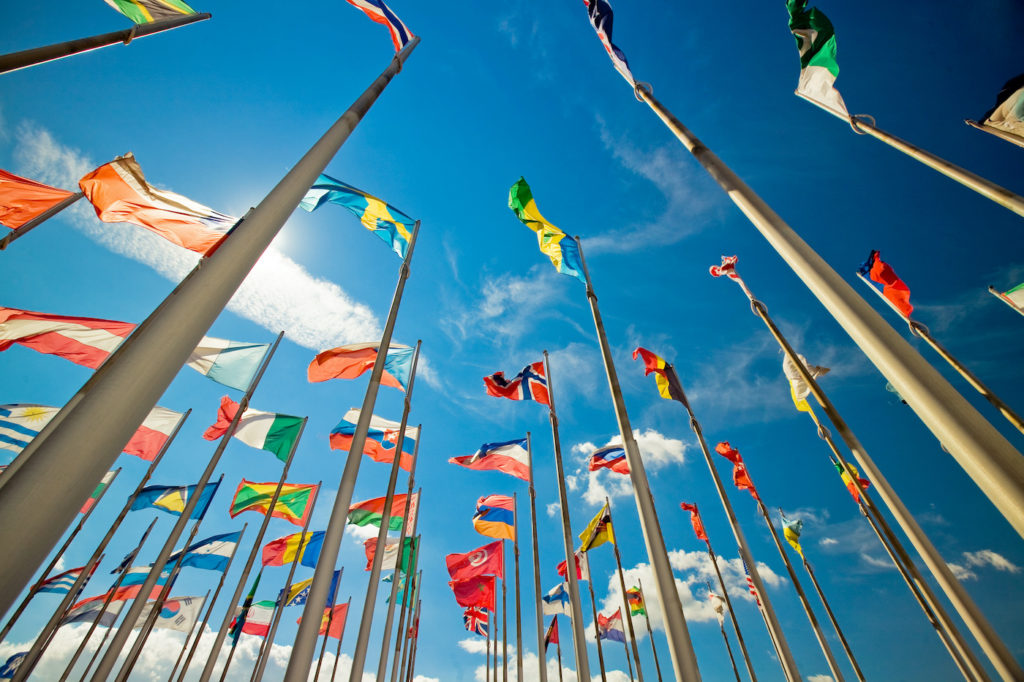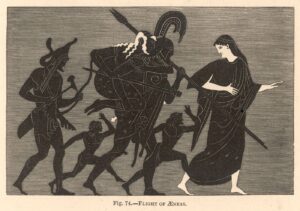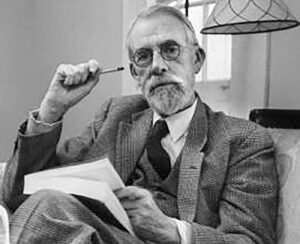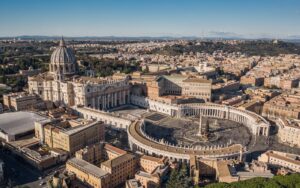Not too many years ago, the celebrated author Francis Fukuyama proclaimed the “end of history” culminating in the global triumph of capitalist liberal democracy. At the same time, globalization allegedly promoted a cosmopolitan outlook that eroded parochial and chauvinistic nationalism. The forces of economics and ideology supposedly conquered the divisions that separated people according to location, culture, language, and similar features. Soon, everyone everywhere would get along. Hatred and warfare would become things of the past.
Sadly, this optimistic story line has clearly not come to pass. Politicians, pundits, polls, and political scientists generally agree that incivility has become a hallmark of both U.S. and world politics. Nationalism of the “unhealthy” sort vehemently condemned by Popes John Paul II and Benedict XVI has morphed into a commonplace phenomenon. Events seem to support the conclusion proposed by the Canadian sociologist John Hall: “In a fundamental sense nationalism stands opposed to the very base of civility: it seeks unity, in contrast to civility’s desire to manage diversity.” One need not look any further than the fierce anti-nativism associated with movements such as Antifa, and the Trumpian populism that crested in the events of January 6th. They are but two sides of the same coin.
So, is Hall essentially correct? Can one ever adopt an identifiably nationalistic mindset without also endorsing jingoistic views incompatible with civility?
It may come as a surprise that affirmative answers to these questions find warrant in ideas stemming from the Middle Ages, a period not normally known for decorum and forbearance. Yet two consequential fifteenth-century authors, Christine de Pizan and Nicholas of Cusa, proposed accounts of nationalism that work against violence and hatred. Eschewing universalistic or cosmopolitan stances, Christine and Nicholas acknowledged the existence of differences among peoples, but they denied that such differences justified chauvinistic contempt toward nonconforming cultural, ethnic, or religious groups. In their view, one might love one’s own nation without demeaning or dehumanizing others of a different nationality.
Start your day with Public Discourse
Sign up and get our daily essays sent straight to your inbox.Simply stated, nationalism of the sort embraced by Christine and Nicholas made resources available for free and open civil discourse, shaped not by force but by listening.
Can one ever adopt an identifiably nationalistic mindset without also endorsing jingoistic views incompatible with civility?
Christine de Pizan
Christine de Pizan was among the most prolific and original political theorists of the Middle Ages, even though for centuries many scholars unjustly dismissed her work as derivative (or worse). Growing up at the highly cultured court of the French King Charles V, she later acquired a noteworthy reputation for her poetic talents. During the reign of Charles V’s successor, Charles VI, the country devolved into recurrent civil conflict occasioned by the new king’s precarious sanity.
Christine abhorred the instability. Around 1405, she composed in French a slim volume entitled The Book of the Body Politic, which sketches the outlines of a well-ordered political system, replete with references to the realities of her day. She suggests that the security and welfare of the community depend on the proper functioning of an extensive set of organically related parts, including not only the king, nobility, and royal officials, but also the “little people”: merchants, artisans, and laborers. Christine explains in detail how each of these groups deserves consideration on account of its unique contribution to the general public good. The tumult roiling France threatened to interfere with or prevent the performance of these people’s essential tasks. The violence that sprang from incivility was destroying the nation.
As befitting someone closely associated with the royal house, Christine may accurately be described as a French nationalist. Yet Christine’s nationalism is of a chastened sort. At times, she adopts a decidedly ambivalent attitude toward her country. Certainly, Christine heaps praise on the kings who had ruled the country for generations, on account of whose wisdom and self-restraint “the people of France [are] very happy.” Yet she cautions that France is not without its own troubles, including not only internecine strife but also taxes and other burdens imposed on its populace that are not imposed elsewhere. Admittedly, no country is entirely free of “services and usages that are more detrimental, like great wrongs done.” All countries have faults, and none may be judged blameless—including France.
For Christine, civility pertains first of all to the internal politics of a nation. Propriety demands that those who are mistreated or abused may state their grievances openly, which offers insurance against social and political instability. In turn, and just as importantly, the good ruler’s absolute responsibility is to make himself available to his subjects so as to hear as many pleas as he can and to “listen to complaints.” Although Christine does not use the term “civility,” she concedes that “good manners (bon guise) ought to include the desire to hear the truth.” She ascribes this openness to critical discourse of King Charles V in her encomium to his “good manners.”
Christine effectively proposes the practice of civility within a nationalistic context. The well-ordered nation depends on mutual respect and open engagement among all its members, whether governors or governed. She touts this as a general principle applicable to any place and at any time, not only to contemporary France. The ills she diagnoses may have special salience there, but because every nation has its “own troubles,” the same requirement for civility obtains equally for all nations. One cannot properly condemn or revile another country when one’s own is roiled by defects that produce disorder and disturbance. Domestic civility with a view to national harmony runs parallel to civility between nations based on their defects. How can France deserve to claim its superiority to England or any other nation when civility is not practiced internally?
The well-ordered nation depends on mutual respect and open engagement among all its members, whether governors or governed.
Nicholas of Cusa
Like Christine, the mid-fifteenth-century philosopher, theologian, and cardinal Nicholas of Cusa realized the potential destabilization created by the diversity of nations on a global scale. In a short treatise entitled On the Peace of Faith, Nicholas expressed horror at the violence engendered by incivility—in this case, the bloodshed that accompanied the brutal sack of Constantinople by the Turks in 1453.
The book recounts a vision supposedly experienced by Nicholas himself—in answer to his prayers that the events at Constantinople be brought to a peaceful conclusion—in which God convokes a conclave of wise men from throughout the world in order to find common ground and ensure that such slaughter would not be repeated. The ensuing imagined dialogue includes delegates from “the individual provinces and sects of the world,” represented by a Greek, an Italian, an Arab, an Indian, a Chaldean, a Jew, a Scythian, a Frenchman, a Persian, a Syrian, a Spaniard, a Turk, a German, a Tartar, an Armenian, a Bohemian, and an Englishman. The parties to the discussion are designated primarily by national or socio-cultural differences. Nicholas views the hatred occasioning the Turkish sack as a reflection of religious fervor connected with the diversity of “nations,” a word he uses throughout.
Nicholas acknowledges that human cultures necessarily diverge according to time and place. Thus, for instance, “difference in the manner of speech” encourages distinctive confessions and rites, even if the true meaning each religion intends to convey is identical. Given specific national identities, religious concord can only be achieved in a partial and muted fashion—“one religion in a variety of rites,” to use his famous phrase. Nicholas realizes that any attempt to level down differences between nations and their religious practices will always be doomed to failure, or worse. As is only appropriate for an orthodox Latin churchman, Nicholas expresses a preference for Roman Christian rites in cases where conformity cannot be achieved, but he recognizes the extent to which different forms of worship are filtered through national identification.
Nicholas thus confronts a serious dilemma. There seems to be no path toward breaking down the national distinctions in which religion is embedded. Religious practice in a socio-cultural sense is regarded as a purely conventional phenomenon, flowing from the traditions and rituals that emerge within a society, albeit contingently. Yet religious ties to national identity render it effectively impossible to eliminate difference. The Greek character expresses incredulity that some rites for which “a nation has shed blood” might readily be renounced. The German likewise doubts “other nations that do not have the custom”—in this case, the Eucharist—“will accept this way of doing things.” The Tartar (who presents himself as an outsider to these disputes) agrees, observing that “diversity gives birth to division and to hostility, hatred and warfare.”
How to engage with one another’s ways of life without recourse to the exercise of force? Nicholas’s answer is that, in essence, there is little to lose and a great deal to gain in rejecting the dangerously chauvinistic idea that the best and indeed only proper existence (especially of worship) is that of one’s own nation. His paradigmatic example is the diversity of views concerning circumcision. Some nations view it as an important religious ceremony, whereas it is prohibited in others. Since circumcision is common among the majority of known rites—or so he says—peace should ideally be attained by “mutual interchanges”: trade-offs in which different nations agree to compromise and to embrace traditions other than are customary “for the cause of peace.” This is not the approach that liberal individualist toleration, with its presumption of a sort of “marketplace of religions,” would adopt.
Nicholas is by no means sanguine that such “mutual interchanges” will achieve very much. Instead, he admits that, given ingrained diversity, respect for the “variety of rites,” rather than the pursuit of compromise, is more likely to mitigate national and religious conflict. The virtue of civility finds expression in the readiness to accept differences in those cases in which no common ground may be found. Nicholas in fact finds value in national religious diversity. The variation of rites according to the differences among nations is capable of promoting worship by permitting a sort of creative competition among the peoples of the world.
Dialing back the exclusivist rhetoric of sovereignty yields the opportunity for people to appreciate their national characteristics while treating one another civilly—respectful in the face of intractable differences that are worthy of celebration.
Nationalistic Fervor Is the Not the Enemy of Civility
For Christine and Nicholas alike, nationalistic passions need not be the enemy of civility. This is a lesson that merits consideration today. The sort of civility that finds expression in Christine and Nicholas is somewhat akin to the “Healthy Patriotism” that Archbishop Chaput proposed in his recent contribution to Public Discourse. (Interestingly, the Archbishop also appeals to a medieval exemplar: the eleventh-century epic poem The Song of Roland.)
Dialing back the exclusivist rhetoric of sovereignty yields the opportunity for people to appreciate their national characteristics while treating one another civilly—respectful in the face of intractable differences that are worthy of celebration.
This position resists the deficiencies of cosmopolitanism and liberal toleration stemming from the empty universalism that pervades our times. Nor is it reducible to multiculturalism and identity politics, both of which are ultimately divisive, no matter what their proponents might say. The title of a recent collection in Public Discourse by R.J. Snell captures this sentiment well: “Pity, Piety, and Patriotic Love for Our Imperfect Nation.” The vision of civil nationalism that I attribute to Christine and Nicholas need not succumb to either cultural relativism or hostile encounter.
One might wonder how the false dichotomy between nationalism and civility ever arose in the first place. The post-Westphalian coincidence of the nation with the sovereign state bears responsibility. Sovereignty presumes an unconditional division between members (citizens, subjects) and non-members (“foreigners,” “outsiders,” “others”). This was not so during a time in European history before the theory and practice of sovereignty predominated.
Should we all long for a return to the Middle Ages? Hardly. But, at least in this respect, we would do well to learn from the thinkers who lived during that too-often overlooked and unappreciated time in Western history.













